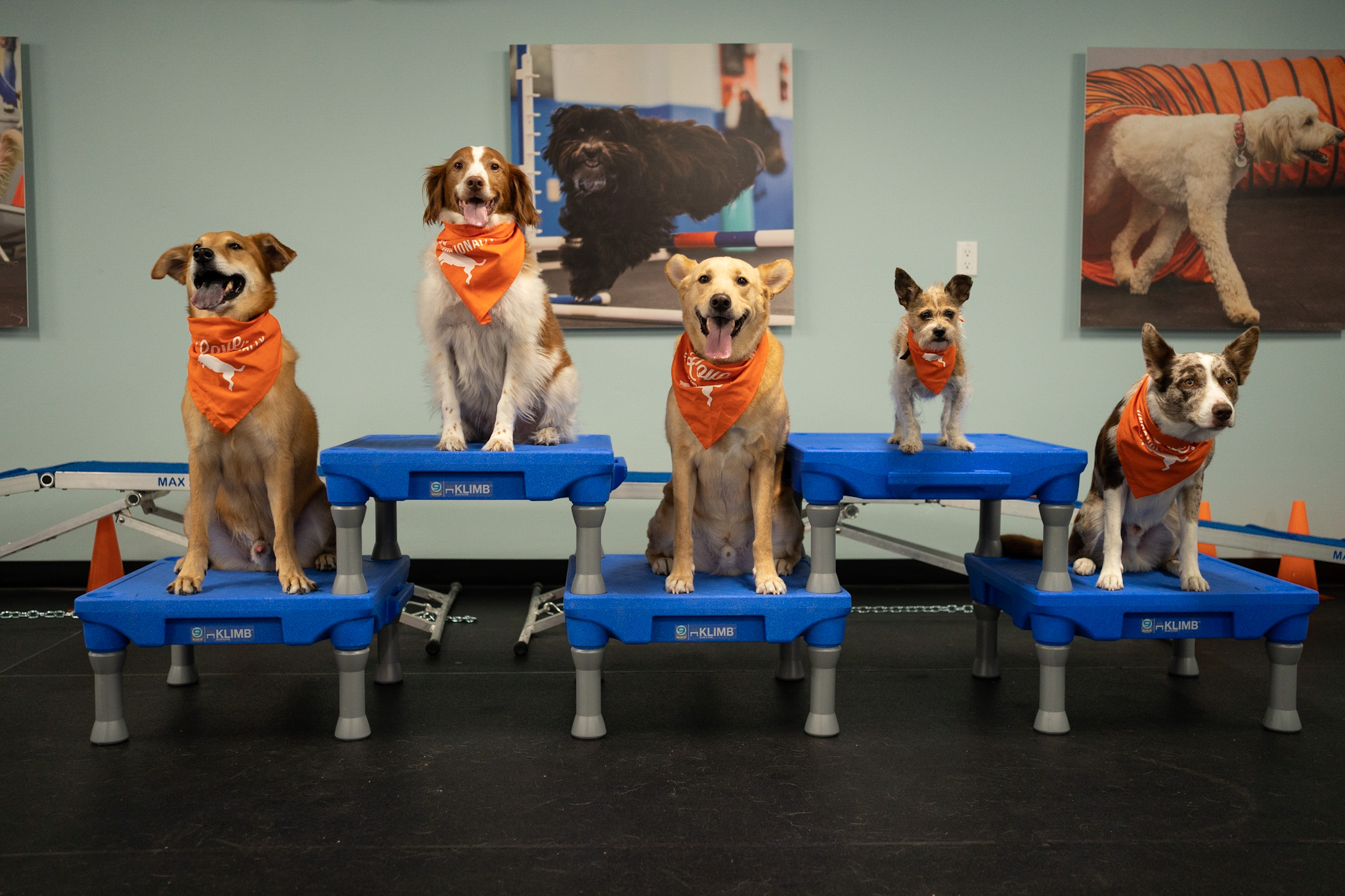The Ultimate Overview to Dog Training Charlotte: Methods for Success
The Ultimate Overview to Dog Training Charlotte: Methods for Success
Blog Article
Unlock Your Pet dog's Prospective: Proven Pet Training Approaches for Success
Effective dog training is a nuanced process that pivots on understanding canine behavior and employing scientifically backed techniques. Dog training. By integrating positive support, developing clear commands, and focusing on socializing, pet dog proprietors can cultivate an efficient relationship with their animals. Difficulties commonly emerge that call for tailored services and a client approach. Discovering these confirmed techniques reveals not only the possibility for behavior improvement but additionally the deeper bond that can be formed between proprietor and pet. What crucial methods must be thought about to really open your pet dog's potential?
Recognizing Canine Behavior
Comprehending dog behavior is important for effective training and cultivating a favorable partnership in between canines and their owners. An extensive grasp of canine body language, articulations, and social interactions is vital for recognizing their emotions and requirements. Pets interact largely through non-verbal hints; for instance, a wagging tail may suggest exhilaration, while pinned ears can indicate fear or submission.

In addition, ecological aspects play a considerable function fit a pet's actions. Modifications in routine, new surroundings, or the visibility of strange people can cause anxiety or anxiety in canines. Acknowledging these triggers makes it possible for proprietors to minimize negative reactions and establish appropriate training strategies.
Inevitably, a deep understanding of pet dog behavior lays the structure for effective training techniques, improving both actions and the general bond in between the canine and its proprietor. dog training near me. This knowledge is indispensable for cultivating a well-adjusted, pleased canine companion
Favorable Reinforcement Methods
Effective training counts greatly on positive support methods, which have actually been shown to generate considerable lead to forming desired habits in dogs. This strategy involves compensating a canine for showing particular actions, therefore increasing the chance that these habits will certainly be repeated. Benefits can take numerous types, consisting of treats, praise, toys, or play, depending upon what inspires the individual dog.

It is vital to progressively terminate incentives as the pet dog discovers the habits, transitioning to intermittent support. This method preserves the behavior with time while preventing reliance on continuous rewards. By concentrating on favorable reinforcement, trainers can grow a trusting partnership with their canines, promoting a healthy and balanced and cooperative training setting that improves total obedience and performance.
Developing Constant Commands
A basic aspect of effective canine training is the facility of consistent commands. Uniformity in commands is important for effective communication in between the fitness instructor and the pet. When commands are uniform, pet dogs learn to connect details words with preferred actions, which accelerates the training procedure and boosts understanding.
To establish constant commands, it is essential that all member of the family use the exact same terms and motions. If one individual uses "sit" while an additional claims "sit down," it can create complication for the pet. Select clear, distinct words for commands and make sure everyone involved in the pet dog's training abides by these selections.
Additionally, repeating is crucial. Enhance commands through regular technique, ensuring that the canine gets adequate possibilities to react correctly. When a canine effectively adheres to a command, prompt positive reinforcement ought to comply with. This might be in the type of treats, praise, or playtime, solidifying the link in between the command and the activity.
Lastly, be client. Developing constant commands takes some time and effort. With dedication and clarity, you will certainly aid your pet dog establish a strong understanding of expectations, inevitably bring about a well-behaved companion.
Socialization and Exposure
Interacting socially a dog is crucial for cultivating a confident and well-adjusted friend. This procedure entails revealing your pet to a range of environments, individuals, and other pets to establish their social skills and flexibility. Early socializing, ideally in between the ages of three to fourteen weeks, is essential, as it lays the foundation for a pet dog's future behavior.
Throughout socialization, purpose to supply favorable experiences in different setups, such as parks, active roads, and homes with other pet dogs. Introduce your pet to different stimulations, including audios, views, and scents, making certain that each experience is rewarding. This direct exposure helps alleviate fear and anxiousness, paving the means for a more durable dog.
Involving in regulated group play sessions with various other pets can likewise boost social skills, showing your pet suitable communications and boundaries. Always check your dog's comfort degree throughout these experiences, gradually boosting direct exposure as their confidence grows. Remember, the objective is to develop an all-round pet dog that thrives in diverse scenarios, promoting a harmonious connection with both human beings and various other animals. Focusing on socialization will significantly add to your pet's total happiness and behavior throughout their life.
Overcoming Common Educating Obstacles

One more constant problem is disturbance. Pet dogs might have a hard time to concentrate in unfamiliar or hectic setups. Slowly desensitize your pet Get More Information to interruptions by beginning training in a quiet atmosphere and gradually introducing even more stimulations as they become efficient (dog training charlotte nc). Favorable support techniques, such as treats and appreciation, can keep motivation and focus.
Additionally, behavioral problems like leaping or too much barking can end up being aggravating. Address these by educating alternative behaviors, such as resting comfortably when welcoming visitors. Consistency and patience are crucial; reinforce preferred behaviors constantly and stay clear of abuse, which can bring about complication.
Last but not least, recognize that each dog is unique, and training timelines may vary. Tailor your approach to your pet's specific demands, and look for specialist advice if essential. With willpower and the appropriate approaches, getting over these obstacles can cause a trained, delighted canine buddy.
Verdict
To conclude, opening a pet's prospective requires an extensive method that incorporates an understanding of canine actions, the application of favorable reinforcement techniques, and the facility of constant commands. Early socialization and direct exposure to diverse environments further boost a pet dog's versatility and confidence. By resolving typical training challenges with customized methods and patience, a cooperative and here unified relationship in between pet and handler can be cultivated, eventually resulting in a mannerly companion efficient in prospering in various scenarios.
Efficient pet training is a nuanced process that pivots on comprehending canine behavior and using scientifically backed approaches.Comprehending pet habits is important for reliable training and promoting a favorable relationship in between dogs and their proprietors.Effective training counts heavily on favorable support methods, which have actually been shown to produce substantial results in shaping wanted behaviors in pet dogs. When commands are consistent, canines learn to connect specific words with desired behaviors, which speeds up the training more information procedure and enhances understanding.
In verdict, opening a canine's prospective demands an extensive technique that includes an understanding of canine behavior, the application of positive reinforcement strategies, and the facility of consistent commands.
Report this page